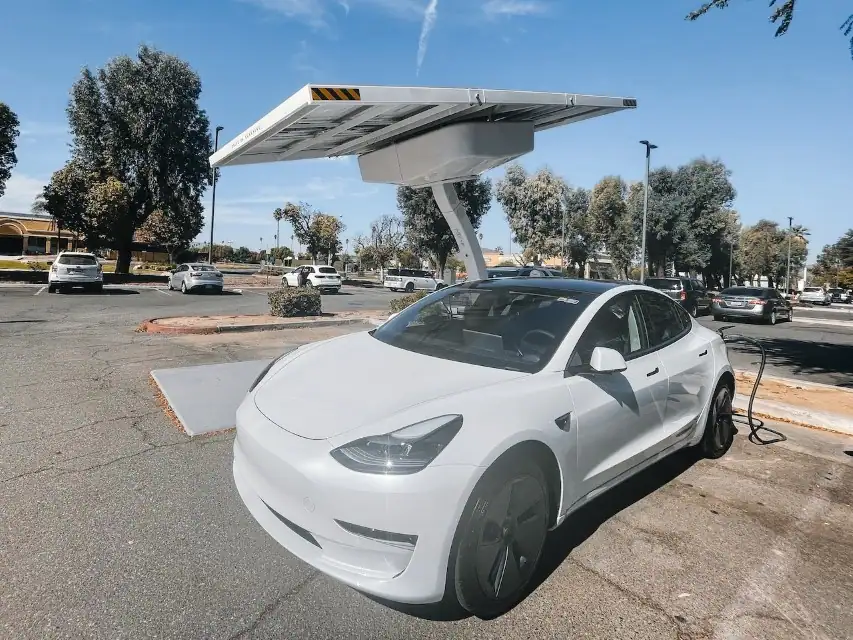
Exploring Electric Vehicles: Understand the Tax Credits and Incentives
August 12, 2023What is an Electric Vehicle Tax Credit?
An electric vehicle tax credit is a financial incentive provided by the government to encourage the purchase and use of electric vehicles (EVs). It is a way to promote clean transportation and reduce greenhouse gas emissions. The tax credit allows eligible EV owners to receive a credit against their federal income tax liability.
How does the electric vehicle tax credit work?
The electric vehicle tax credit works by reducing the amount of federal income tax you owe. If you qualify for the credit, you can deduct the amount of the credit from your total tax liability when filing your tax return. This means you can receive a reduction in the amount of tax you owe for the year.
Which vehicles qualify for the electric vehicle tax credit?
To qualify for the electric vehicle tax credit, the vehicle must meet certain criteria set by the government. Generally, eligible vehicles include new electric cars, plug-in hybrid vehicles, and fuel cell electric vehicles. However, it’s important to note that not all electric vehicles qualify for the tax credit.
What are the requirements to qualify for the federal tax credit?
To qualify for the federal tax credit, there are certain requirements that need to be met. Firstly, the EV must be new and acquired for personal use, not for resale. It must also have a gross vehicle weight rating (GVWR) under 14,000 pounds. Additionally, the vehicle must be treated as “property” for federal income tax purposes.
Understanding the Federal Tax Credit for Electric Vehicles
The federal tax credit for electric vehicles is a government incentive designed to offset the cost of purchasing an electric vehicle. It is aimed at reducing the upfront cost barrier and making EVs more affordable for consumers.
What is the federal tax credit for electric vehicles?
The federal tax credit for electric vehicles allows eligible individuals to receive a credit of up to a certain amount when they purchase a qualifying electric vehicle. The amount of the credit varies depending on the capacity of the vehicle’s battery pack and the model year.
How much of a tax credit can you get for purchasing an electric vehicle?
The amount of the tax credit depends on the vehicle’s battery capacity. Currently, the maximum tax credit is $7,500 for eligible electric vehicles. However, it’s important to note that the credit is subject to a phase-out period once a manufacturer has sold a certain number of qualifying vehicles.
Are there any restrictions on the federal tax credit for electric vehicles?
Yes, there are certain restrictions on the federal tax credit for electric vehicles. Firstly, the credit is non-refundable, which means it can only be used to offset your tax liability. If the credit exceeds your tax liability, you cannot receive the difference as a refund. Additionally, the credit is subject to the Alternative Minimum Tax (AMT).
Qualifying for the Electric Vehicle Tax Credit
Qualifying for the electric vehicle tax credit involves meeting specific eligibility criteria. It’s important to understand these criteria to determine if you are eligible for the credit.
What are the eligibility criteria to qualify for the electric vehicle tax credit?
To qualify for the electric vehicle tax credit, you must meet certain criteria. Firstly, the EV must be new and acquired for personal use, not for resale. Secondly, the vehicle must have a battery capacity of at least 4 kWh. Lastly, the EV must be purchased from a manufacturer that has not yet sold a predetermined number of qualifying vehicles.
Do used electric vehicles qualify for the tax credit?
No, used electric vehicles do not qualify for the federal tax credit. The tax credit is only available for the purchase of new electric vehicles.
Are there different tax credits for new and used electric vehicles?
No, there are no federal tax credits available for the purchase of used electric vehicles. The tax credit is only applicable to new electric vehicles.
Recent Changes to Electric Vehicle Tax Credits
In recent years, there have been changes and updates to the electric vehicle tax credit program. It’s important to stay informed about these changes to fully understand the available incentives.
What changes were made to the electric vehicle tax credit in 2022?
In 2022, there were no major changes made to the electric vehicle tax credit. The maximum tax credit amount remained the same, and the eligibility criteria did not see any significant modifications.
What are the upcoming changes to the tax credit in 2023?
Starting in 2023, there will be changes to the electric vehicle tax credit program. The maximum tax credit amount will remain the same, but there will be a phase-out period for certain manufacturers. Once a manufacturer has sold 200,000 qualifying vehicles, the tax credit will begin to phase out for that manufacturer’s vehicles.
How can the Inflation Reduction Act of 2022 affect the electric vehicle tax credit?
The Inflation Reduction Act of 2022 does not directly impact the electric vehicle tax credit. However, it may indirectly affect the value of the credit over time due to potential changes in tax brackets and inflation adjustments.
Other Tax Incentives for Electric Vehicle Owners
In addition to the federal tax credit, there are other tax incentives available for electric vehicle owners.
Are there any additional tax incentives for electric vehicle owners?
Yes, there are various state-specific tax incentives for electric vehicle owners. These incentives can include rebates, tax credits, and reduced registration fees. The availability and value of these incentives can vary depending on the state.
What are the state-specific tax incentives for electric vehicle purchases?
State-specific tax incentives for electric vehicle purchases can include income tax credits, sales tax exemptions, and reduced vehicle registration fees. It’s important to check with your state’s department of revenue or energy office to learn about the specific incentives available in your area.
Is there a separate tax credit for plug-in hybrid vehicles?
Yes, plug-in hybrid vehicles are also eligible for certain tax credits. The amount of the credit depends on the vehicle’s battery capacity and the model. It’s important to research and understand the specific tax incentives available for plug-in hybrid vehicles.


